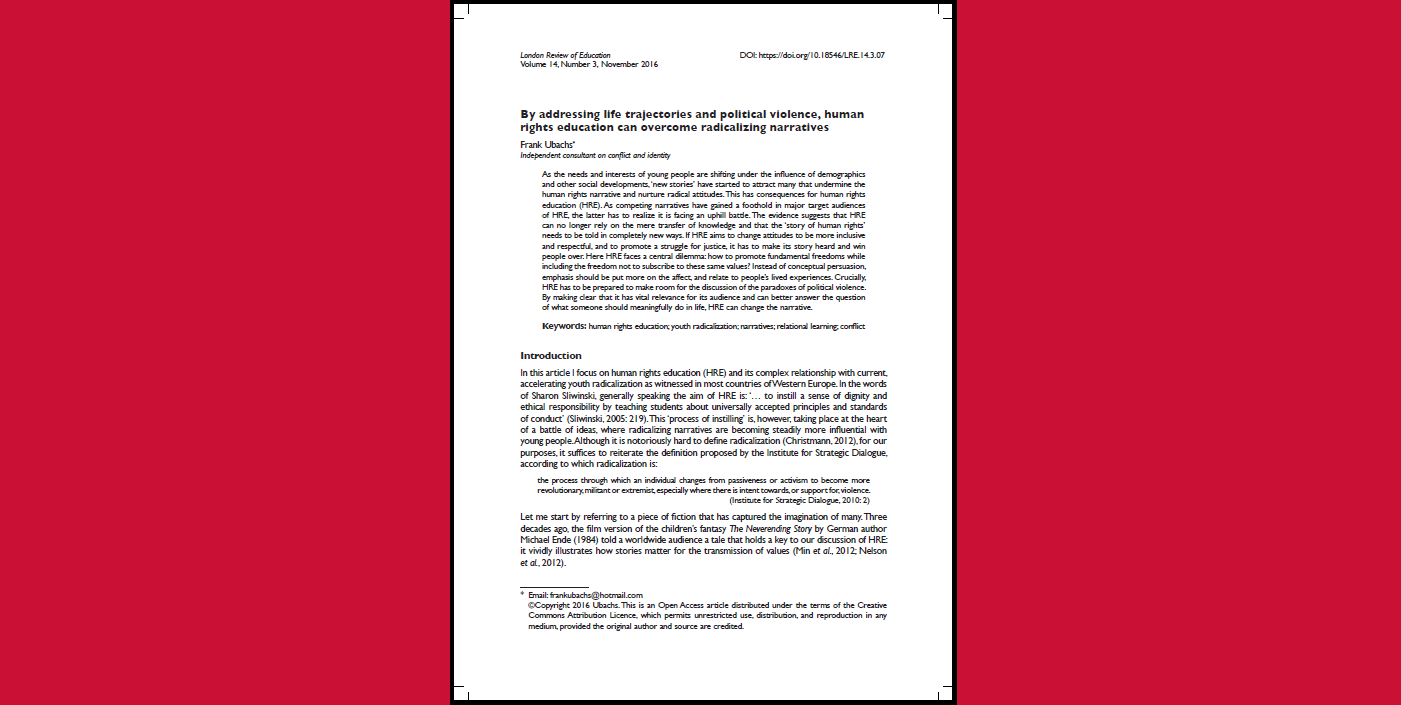
Research Article
Author: Frank Ubachs, Independent Consultant on Conflict and Identity
Abstract: As the needs and interests of young people are shifting under the influence of demographics and other social developments, ‘new stories’ have started to attract many that undermine the human rights narrative and nurture radical attitudes. This has consequences for human rights education (HRE). As competing narratives have gained a foothold in major target audiences of HRE, the latter has to realize it is facing an uphill battle. The evidence suggests that HRE can no longer rely on the mere transfer of knowledge and that the ‘story of human rights’ needs to be told in completely new ways. If HRE aims to change attitudes to be more inclusive and respectful, and to promote a struggle for justice, it has to make its story heard and win people over. Here HRE faces a central dilemma: how to promote fundamental freedoms while including the freedom not to subscribe to these same values? Instead of conceptual persuasion, emphasis should be put more on the affect, and relate to people’s lived experiences. Crucially, HRE has to be prepared to make room for the discussion of the paradoxes of political violence. By making clear that it has vital relevance for its audience and can better answer the question of what someone should meaningfully do in life, HRE can change the narrative.
Key Words: Human Rights Education, Youth Radicalization, Conflict, Violence
Published: January 2018
NB: This article was published with explicit permission of the author. It was first published by UCL IOE Press in the London Review of Education 14(3) pp. 85-95.
Click to download the full article. here
